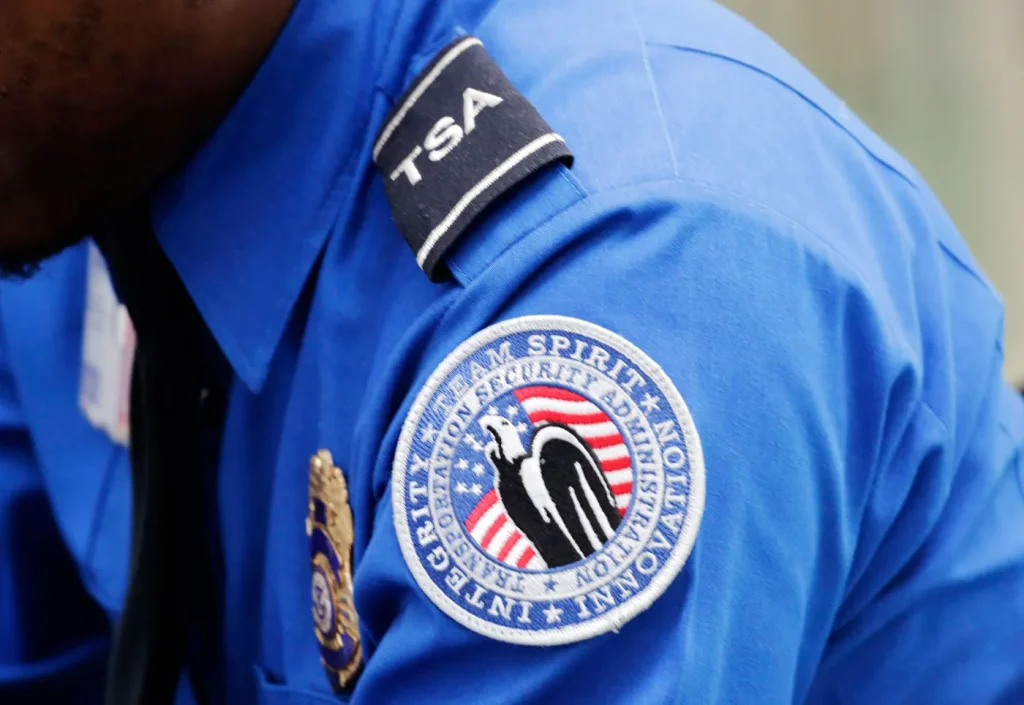Airport TSA Checkpoint & Border Crossing Crimes
More than ever, people are traveling in great numbers for leisure and business. Prior to reaching a particular destination, one must deal with various security measures in place at airports and borders. Upon boarding any international or domestic flight, a person is required to pass through a TSA security checkpoint. Traveling internationally requires possible interrogation and search by a customs agent at the border. If a person has something that is forbidden, the TSA or customs agent will take action.
CALL ABDO LAW NOW 586-412-5555 for a FREE CONSULTATION & SAME DAY APPOINTMENT with the finest lawyers in Metro Detroit to get answers to your most pressing questions and a solid plan to get your life back on the right track! Ask about easy on-line sign up and we can take it from there.
International border crossings and airports are heavily policed by various local and federal police agencies including US Customs and Border Protection, Homeland Security and TSA (Transportation Security Administration). The TSA is an agency of the United States Department of Homeland Security that has authority over the security of transportation systems within, and connecting to, the United States. In Michigan, the following locations serve a high volume of traffic coming into the Michigan from Canada as well as other countries and states:
- Metropolitan Airport (Romulus)
- Blue Water Bridge (Port Huron)
- Detroit Windsor Tunnel (Detroit)
- Ambassador Bridge (Detroit)
- Gordie Howe International Bridge, expected to open 2025
There is also a ferry service, Walpole-Algonac Ferry, which carries passengers and vehicles across the St. Clair River between Algonac, Michigan, USA. and Walpole Island, Ontario, Canada.
The movement of passengers and freight at airports and borders is subject to numerous legalities which may include the search of any person, luggage or motor vehicle at an airport or border security checkpoint or crossing. When a search reveals any prohibited item, such as drugs or a weapon, criminal charges are likely to be pursued that can range from a misdemeanor to a felony, depending upon the seriousness. Being forgetful or negligence and/or ignorance of the law is no defense if you are found to have illegal goods in your possession.
Unfortunately, the 4th Amendment to the United States Constitution which protects individuals from unreasonable searches and seizures, does not apply to searches at an airport checkpoint or at an international border. When you enter an airport checkpoint zone (TSA security area) or cross an international border, a search may be conducted without probable cause and without a search warrant. In addition, it can be said that you implicitly consent to a search when you attempt to board an airplane or cross a border.
Checkpoint/TSA Violations at Detroit Metropolitan Airport
Metropolitan Airport, located in Romulus, Michigan, is an international airport with one of the largest airline hubs in the United States for passenger and commercial traffic. It is located in the City of Romulus, in Wayne County, Michigan.

The TSA has strict regulations regarding items that are prohibited to be taken onto an airplane. A person that is caught with a prohibited item at an airport, such as a firearm or knife, may face one or more of the following legal situations:
- TSA Notice of Violation for civil penalties (fine).
- TSA referral for State or Federal criminal charges.
- A criminal checkpoint violation (34th District Court).
- Interview by TSA agent to determine future travel risk.
- All of the above.
TSA civil monetary penalties can range between $250.00 (possession of chlorine) to $11,000.00 (possession of explosives). The TSA will also consider whether there are aggravating or mitigating factors, such as: degree of the security risk created by the violation, whether the violation was inadvertent or deliberate, violation history of the offender, attitude of violator and level of concealment.
GETTING AN ATTORNEY to deal with the court system is your best option to get a favorable outcome. We can arrange to have your case scheduled remotely and negotiate extremely forgiving dispositions with no jail and a dismissal in most cases.
We Can Handle ALL Detroit Metro Airport Checkpoint Violations!
It is a crime, classified as a misdemeanor, to possess a prohibited item, such as a knife or firearm, at an airport checkpoint. However, under certain circumstances, carrying a concealed weapon can be also can charged as a felony. In 2023, 6,737 firearms were confiscated by the TSA which is the highest amount in the history of the TSA. Concealing prohibited items, such as a container with alcoholic beverages, or failing to declare merchandise can also constitute a crime.
Let our Metro Detroit criminal defense lawyers get your life back on track if you are charged with a TSA checkpoint violation or border crossing crime. ABDO LAW will give you a free consultation and the ability to seamlessly sign up online.
Criminal cases, such as TSA checkpoint violations that occur at Detroit Metro Airport, are heard at the 34th District Court located in the City of Romulus. CLICK HERE for a link to the 34th District Court case look-up portal. The 34th District Court offers the convenience of having your case handled via remote/ZOOM proceedings for most cases and for non-residents. We can assure you that our law firm has an excellent track record of successfully handling checkpoint violations and getting our clients out of the court system with the lowest result possible and no jail. In some situations, a criminal conviction can be avoided altogether.
International Border Crossing Crimes
The means to travel from Canada into Michigan chiefly consists of the Detroit Metro Airport, Detroit Windsor Tunnel, Ambassador Bridge and Blue Water Bridge in Port Huron. The Gordie Howe Internation Bridge is under construction and is expected to be completed in 2025, will be equipped to handle a high volume of Detroit-Windsor vehicular traffic. Getting charged at a border can occur based upon an active investigation or a routine search by Homeland Security, ATF agents, US Customs agents or DEA agents. Drug crimes and firearm crimes are some of the most common criminal offense that occur at border crossings. Criminal activity occurring at an international border has the potential to be charged as a federal crime or under state law.
Getting Hit With an OWI at the Michigan – Canada Border
The drinking age in Canada is 18-19 years old, depending upon the province. In Windsor, the drinking age is presently 19 years old. The lower drinking age in Canada attracts Michigan residents. It is not legal to consume alcoholic beverages in Michigan until age 21. Upon returning into the United States, the laws of Michigan apply and the operator of a vehicle may be charged with drunk driving or zero tolerance if the border police detect intoxication or impairment. Upon conviction of most criminal offenses in the United States (including a drunk driving or retail fraud) a person may become “criminally inadmissible” to enter Canada.
Criminal Convictions Can Lead to Deportation
A conviction of a crime which is a felony or one that is classified as a crime involving moral turpitude can result in deportation and denial of citizenship in the United States. Offenses such as retail fraud and domestic violence are considered crimes involving moral turpitude. Getting the right attorney is crucial if you or a loved one is faced with a crime that jeopardizes alien status or can result in deportation. There are ways to help you if you are not a US citizen by avoiding a criminal conviction or amending the case to an offense that is not considered a felony or crime involving moral turpitude.
ABDO LAW has the best reviews and highest legal ratings in the business. Give us a call if you or a loved one is facing a criminal or drunk driving offense and let us give you a winning plan to get your life back on track.
FREE PHONE & OFFICE CONSULTATION
Call Anytime Including Weekends and Holidays.
Easy Online Sign-Up Option!
Phone: 586-412-5555 Email: contact@abdolawfirm.com





















